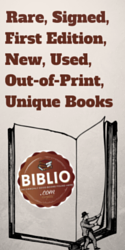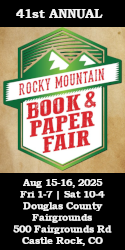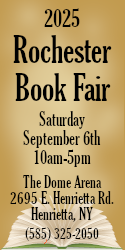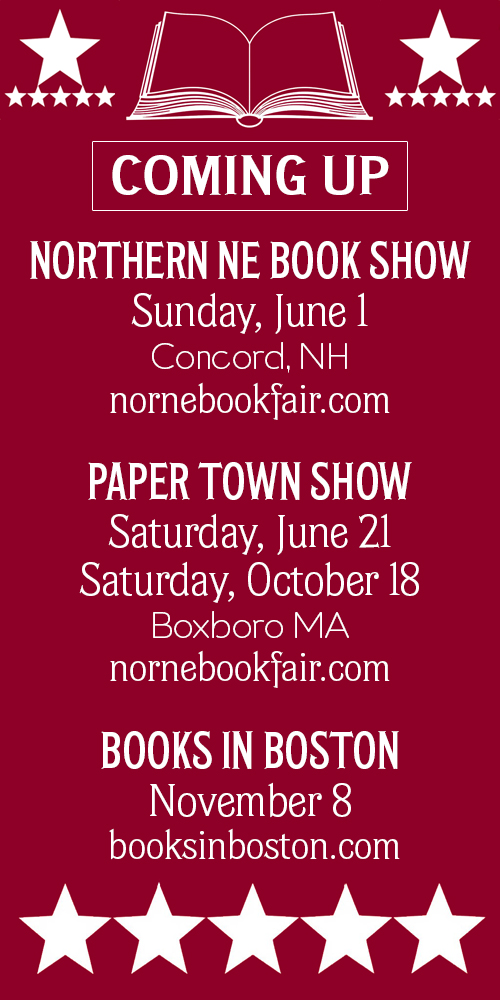Two Laureates
In my checkered and rarely (blessedly) checked career as student and teacher, I had the pleasure and distinction of meeting two of our Poet Laureates. Richard Wilbur (born 1921) was a classmate at Amherst of L. Edward Willard, Chairman of English at Hebron Academy for nearly forty years. I was a student at Hebron when Ned (later I taught in his department along with my late wife) got Dick Wilbur to deliver the Cum Laude address in 1962. At the time I did not know any of Richard Wilbur's poetry, and I regret that now I cannot remember what poems he read to us. I seem to recall that one had clotheslines in it, but I can't find it, and I spent the latter third of my career teaching students who didn't know what a clothesline is. I am so old as to be not part of the Development that here in Kennebunkport bans them, but I could raise one tomorrow, should I wish to do so! Grandfathered! For years I offered to my Advanced Placement classes Wilbur's brilliant poem “In the Smoking Car,” until two smart girls two years in a row wrote that the poem was about an awful automobile accident—quite reasonably, for, unfortunately, we had reached an era in which smoking cars were a thing of the past, unknown to their virgin lungs and nostrils.
When I began teaching in 1968, Wilbur was appearing regularly in The New Yorker. His poems, as a rule, are governed if not inspired by rhyme and meter—unlike many of the poems appearing in the magazine now, some of which I am not ashamed to say I can't read. Like other great artists, each time Wilbur sets out to work within a convention he renews it. “Boy at the Window” (“Seeing the snowman standing all alone/in dusk and snow is more than he can bear”) is my favorite example: for the first eight lines it looks like a sonnet, but instead of resolving it in the usual six lines to follow (as of course he could have done) the poet produces another eight lines that also look like the start of a sonnet: “The man of snow is, nonetheless, content,/Having to wish to go inside and die.” So he gives us not one of two sonnets, but two starts on two sonnets: one the boy's, one the snowman's; and the two points of view—parallel in form but opposite in perspective—multiply the seemingly simple reality of the title. The boy at the window sees the snowman...and the snowman sees the boy at the window, “Surrounded by/Such warmth, such light, such love, and so much fear.” Like all truly wonderful poems, this one is a masterpiece of ambivalence; two incomplete sonnets in one complete poem.
“Transit” (“A woman I have never seen before/Steps from the darkness of her town-house door”) appeared in The New Yorker during Richard Wilbur's tenure as Poet Laureate (1987, 1988), and thereafter for almost twenty years I offered it to A.P. classes as an image as endurably fine as Frost's snowy evening or yellow wood: “Still, nothing changes, as her perfect feet/Click down the walk that issues in the street.”s The poet has told us that this woman is “So beautiful that she or time must fade.” but at the end he is ambivalent about—and of course does not tell us—which fades, if either does. So too of Frost's woods; snowy, lovely, dark and deep...but he has promises to keep; or yellow, with two diverging roads. Taking the one seen in retrospect as “the one less travelled by” made “all the difference”; but the great poet Frost, like the great poet Wilbur, would not tell us what the difference was. Our not knowing what the poet is unsure about is what makes the poems so marvelous. Only fools have answers, as I used to tell over-eager students.
Wilbur's “Mayflies” in its brilliance defies every poem ever written in our time and any commentary from me. His "After the Last Bulletins" was snapped up by the College Board for a Sample Test: all the multiple-choice answers available showed that the College Board Readers/Testers did not understand the poem at all. Hoisted on that petard, neither did any of my colleagues in the Kent School English Department. In that same context, his “Still, citizen sparrow” has so often been misread as “Chill, citizen sparrow” by students and colleagues that I can't claim it as a joke.
Richard Wilbur was our USA Poet Laureate, 1987-1988. Robert Pinsky, a later one, 1997-2000, accepted an invitation to speak and read and do a “workshop” at Kent School. Pinsky has a famous poem about making a shirt, and he alluded several times that evening and next day to it and to his own shirt: hand-made, custom-fitted, but not sporting a neck-tie. “Of man's first disobedience and the shirt,” with a rhetorical query about our masturbation. (Not a query often flung about in a New England Episcopal Boarding School, and I'm sure most of his audience over thirty didn't hear it. Anyone under thirty wouldn't get it.) He has done a brilliant translation of Dante, of which I have not read very much. In the course of his presentation Mr. Pinsky recited by heart a poem beginning “Love at the lips was touch/As sweet as I could bear,” and challenged anybody in the audience to identify the poet. Having known Frost's poem almost by heart since I first read it in 1963, when Mr. Pinsky was about 23, I perversely broke the silence by saying “Gerard Manley Hopkins?” "Not a bad guess," said Mr. Pinsky. “Doesn't sound like Robert Frost, does it?” Read it again—“The hurt is not enough:/I long for weight and strength/To feel the earth as rough/To all my length.” Who but Frost could have written that? Hopkins, perhaps. The title of the poem is “To Earthward.” I have never understood the seeming redundancy of the title phrase, but Robert Frost knew a lot that I don't. So does Robert Pinsky. At the Headmaster's dinner table he made some quirky casual remark about algebra. “Charles failed Algebra” the head of my department hastened to point out. “Good for him” said the great man.
When I was young and easy, under the apple boughs, Northrop Frye spent a week at Bowdoin College. Knowing full well that he had long since revolutionized literary criticism, from the arctic Victoria College in Toronto, he was generously pleasant to juvenile disciples in the States. “How does it feel to be a literary critic?” asked my classmate Frank Jones Taylor in the elevator. “It feels all right,” said Lord Northrop. A day or two later at breakfast I tackled him on P.G. Wodehouse. “Oh, yes, the tricky servant,” he said. “You're thinking of Plautus and Terence and The Alchemist?” I said. “Yes,” he said, and I went for more coffee. So much for Wodehouse. In that same wonderful year I was introduced to Judy Collins (I had never heard of her at the time and thought she was my roommate's date, though he was but her Senior Council Representative for a gig she was doing at the college) and a Conrad scholar whose name I can't recall, though I loved his daughter Cologne at breakfast. Conrad? Cologne? Breakfast?
Years later, in his great old age, Cleanth Brooks of Yale (The Well-Wrought Urn) came to speak at Kent School. The first of the New Critics, the Last of the Old Critics...I don't know enough to know...but from him and Harold Bloom's The Visionary Company I learned as much as I thought I ever needed to know for a third of a century about how to read or teach poetry. If there are literary gods, these two men are among them...however mistaken I may have found them occasionally to be. A former colleague of mine—a Yale graduate—years ago asked Professor Brooks of Yale what he had to say about Professor Bloom of Yale: “Professor Bloom gives bull-shit a bad name” said Professor Brooks.
Presumably by coincidence, the laurelled (though aging) poetical youths, Pinsky and Wilbur, both appear in the double issue of The New Yorker for February 11 & 18. The Pinsky poem, “The Saws,” hangs its stylish hat on cloak-room clichés, “dead as a doornail” and darkness before dawn, spinning rapidly through The March of Time from them into worlds too contemporary for me to learn: “Back, then, passing a graveyard you might actually whistle:/No walk in the park.” What on earth, or beneath it, is, no matter who is buried there, “a graveyard you might actually whistle”? “Zombie expressions, Buddy [Can you spare a dime?]...still stagger the castle”? What can this mean? That, Mr. Pinsky might tell me, means poetry. Having taught poetry for a third of a century, I never told a kid what it meant; that I hear what Pinsky is saying is not pure luck: I had some great teachers and have read a great many poems, and I do not envy the reader, cutting through the saws, who can't see what he's saying, the forest for the trees. “Kiss the cat and you kiss the fleas” he adds; “And That's the story of my life.” Roses have thorns, and silver fountains mud? Perhaps. For Mr. Pinsky, “The old saws hardly ever anymore called saws” need the new sharp teeth he files for them.
In “A Measuring Worm,” a poem about a caterpillar (“Although he doesn't know it,/ He will soon have wings”), Richard Wilbur concludes: “I, too, don't know/Toward what undreamt condition/Inch by inch I go.” In eight lines the poet Pinsky flails about disingenuously and ingeniously with the tired language and the tiring human condition...trying to stagger the castle...as who does not? And he, unlike the rest of us, succeeds. Then Richard Wilbur, the poet, firmly defines both and sets us all, including the castle, aside...and at rest: “And I, too, don't know” (the most beautiful line utterable in our language). Both poems tell the story of a life, not ended yet: kiss the fleas and still not know; and both poems meet the criterion set by my teacher, the poet Louis O. Coxe of Bowdoin College: every great poem is, at last, a poem about the making of poems. Pinsky builds castles on the sawdust of old saws, and Wilbur's worm turns—into a butterfly...as, thanks to these poets, we may too.
Charles E. Gould, Jr. is a retired member of the English department at Kent School, an antiquarian bookseller, and P.G. Wodehouse specialist. He lives in Kennebunkport, ME.


























